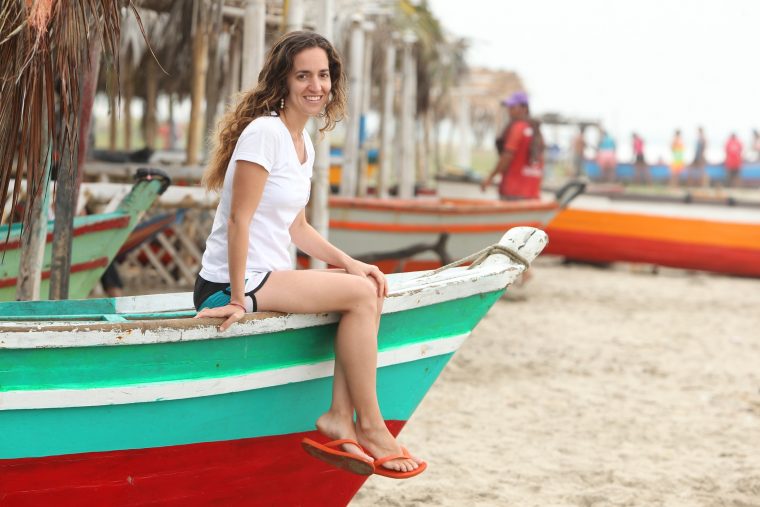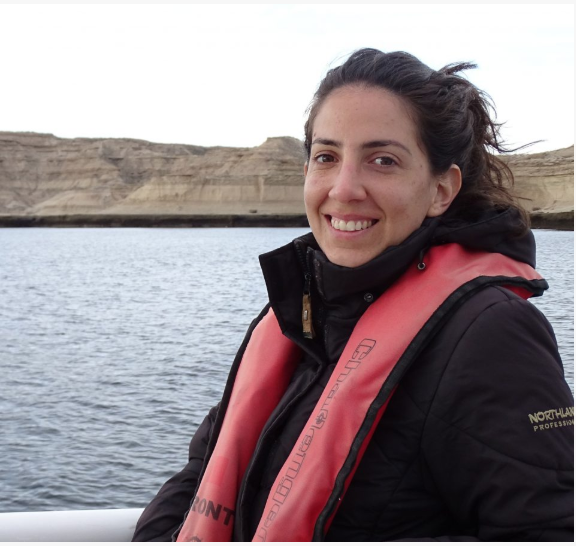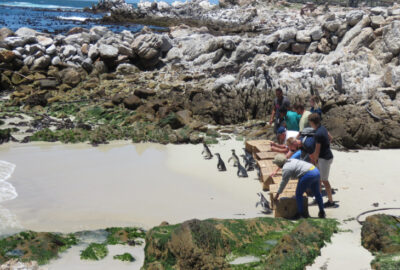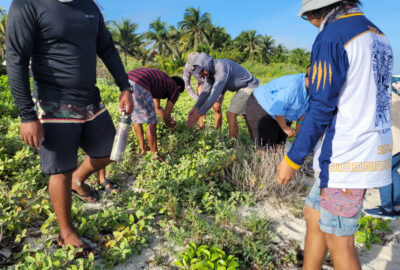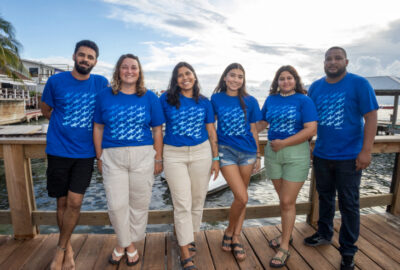MCAF: Latino Conservation Week
¡Esta semana es #LatinoConservationWeek!
By New England Aquarium on Thursday, July 14, 2022

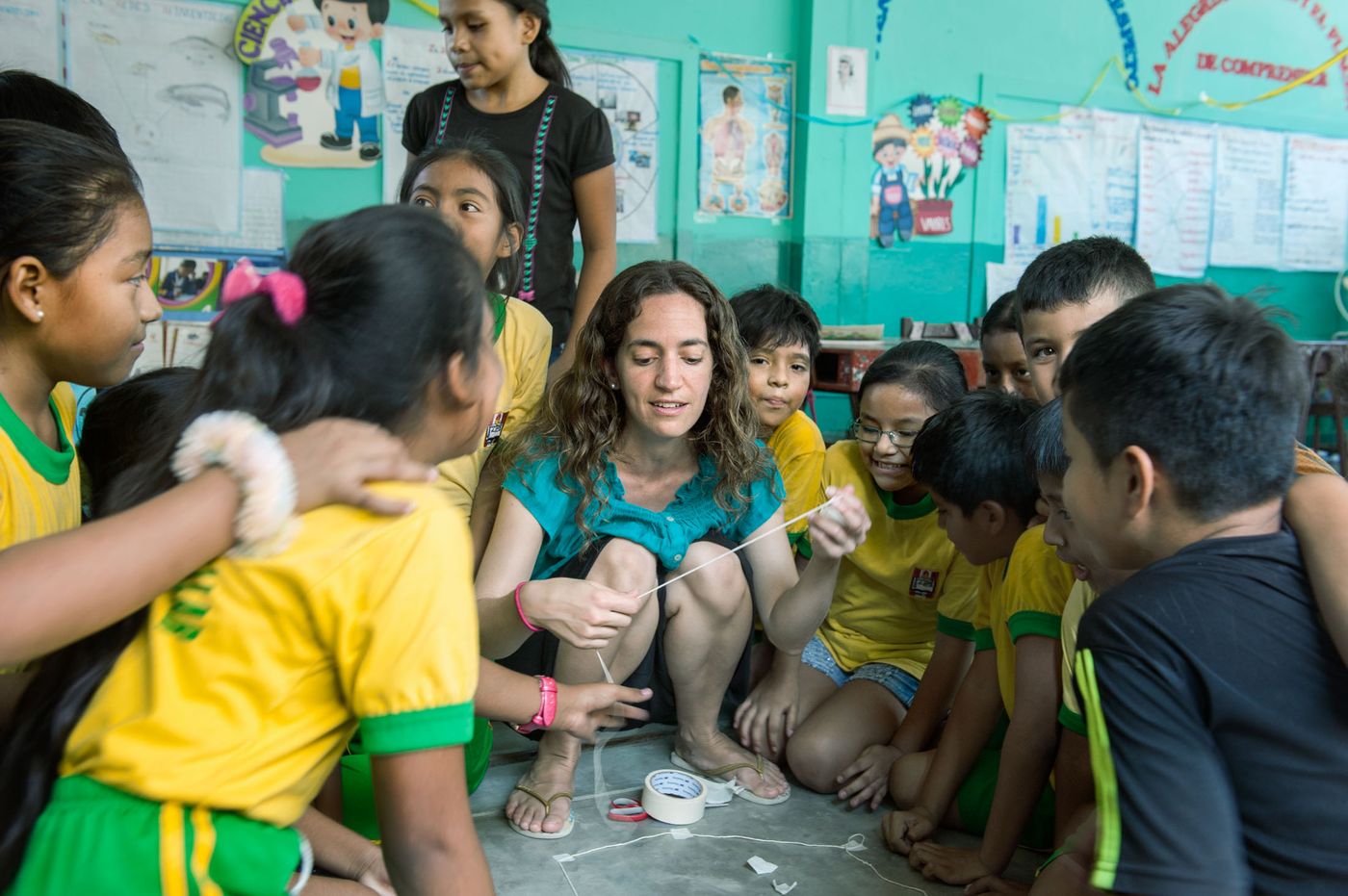
By Marisa Bernal
This week is Latino Conservation Week! Every summer, the Hispanic Access Foundation designates a week to highlight the Latinx community’s passion for conservation. This year, we interviewed some of our Marine Conservation Action Fund fellows and grantees about the incredible conservation work they are doing throughout Latin America, and we learned a little about them along the way!
Kerstin Forsberg
New England Aquarium MCAF Fellow
Peruvian Marine Biologist
Founder and Director of Planeta Océano
How did you get into the field of conservation?
“I have always been passionate about nature and animals. Growing up as a kid, I used to read dozens of animal books and I was always staying tuned to any wildlife conservation campaigns going on. When I was 8 years old, I formed an animal club in my school. I then studied Biology and volunteered in several projects, including with the local zoo, a local protected wetland and a sea turtle conservation organization. When I graduated, I worked as an environmentalconsultant in a private company, carrying out environmental baseline studies and environmental impact studies for the industry sector in the Peruvian Andes. In the meantime, I developed a community-based volunteer sea turtle project in northern Peru, that later grew into Planeta Océano.”
Kerstin Forsberg and her Planeta Oceano team work to conserve marine environments through research, education, and advocacy with a focus on community engagement and sustainable livelihoods. To learn more about Kerstin and her work visit Kerstin’s MCAF page.
Clemente Balladares
New England Aquarium MCAF Grantee
Marine Biologist In Venezuela
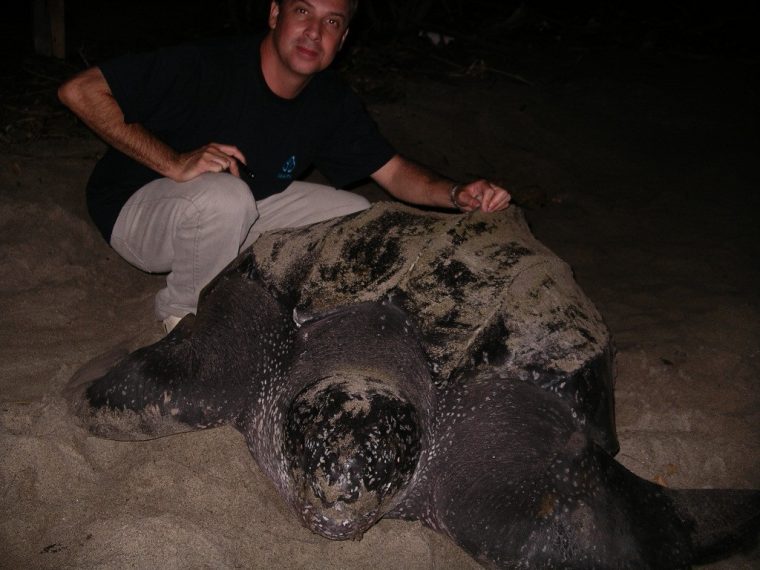
What inspired you to work in your field?
“Since I was a young lad in the 70s I have loved the sea, documentaries of Jacques Cousteau, ocean adventures in books; I even tried to join the Venezuelan Navy. However, I chose to study Marine Biology at the Universidad de Oriente in Cumana in the 80s. This was a beautiful decade when the Oceanographic Institute of Venezuela had a ship call Guaiqueri I, which traveled the near southern Caribbean Sea. After my graduation in 1991, I had the opportunity to study tuna fisheries and cetacean interactions in the Pacific Ocean.”
For two decades, marine biologist Clemente Balladares has worked to study and protect sea turtles in the Paria Gulf Venezuela. The photo above is from the beginning of Clemente’s project, featuring a leatherback sea turtle. To learn more about his work, check out a blog he wrote.
Didiher Chacon Chaverri
New England Aquarium MCAF Grantee
Costa Rican Marine Biologist
Executive Director, Latin American Sea Turtles (LAST)
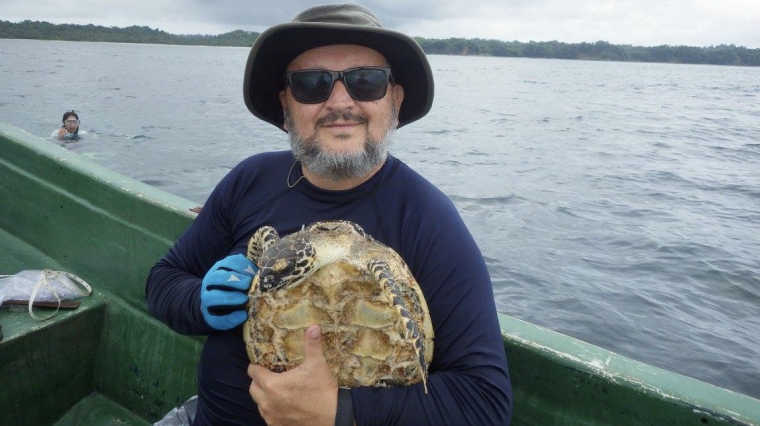
What is your favorite memory working in this field?
“My first year as biologist, I was doing a speech in a [very poor] coastal community about the importance of protections, conservation and reducing the use over some resources. When I finished, a man came to talk with me and told me that he agreed with everything I said, but the hardest thing for him was to get home empty-handed and his children were hungry. That is how I understood that although it is true that humanity is responsible for conservation problems, we must think that there are also vital needs in communities that we must help solve. If we achieve this, the same community will help in conservation. I have applied this for over 30 years of my conservation practice in Latin America, and it has undoubtedly produced fantastic successes in changing people’s lives and conserving key species.”
Didiher Chacon-Chaverri is a Costa Rican marine biologist and the executive director of Latin American Sea Turtles (LAST) in Costa Rica. For more than three decades, Didiher has worked to study and protect sea turtles through research, conservation, and education with a community-centered approach. To learn more visit Latin American Sea Turtles.
Dr. Marisa Tellez
New England Aquarium MCAF Grantee
Founder and Executive Director, Crocodile Research Coalition
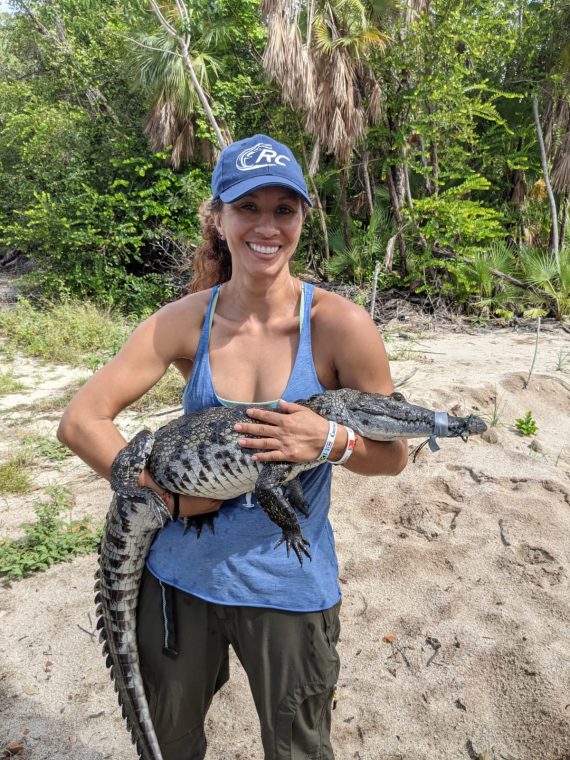
What would you like to share about your work?
“‘When a woman loves a crocodile, she takes on its character.’ —Egyptian Proverb. Strength, intelligence, fierce, yet nurturing. I’ve come to embody the characteristics of a crocodile in my conservation work in order to further my goal of wildlife coexistence and appreciation, particularly through education and community involvement as conservation is not just about wildlife, it’s about people.”
Dr. Marisa Tellez is the founder and Executive Director of the Crocodile Research Coalition and focuses on the research and conservation of crocodiles and their habitat throughout Central America and the Caribbean. To learn more visit her website.
Dr. Pedro Henrique Pereira
New England Aquarium MCAF Grantee
Founder and Director, Projeto Conservação Recifal
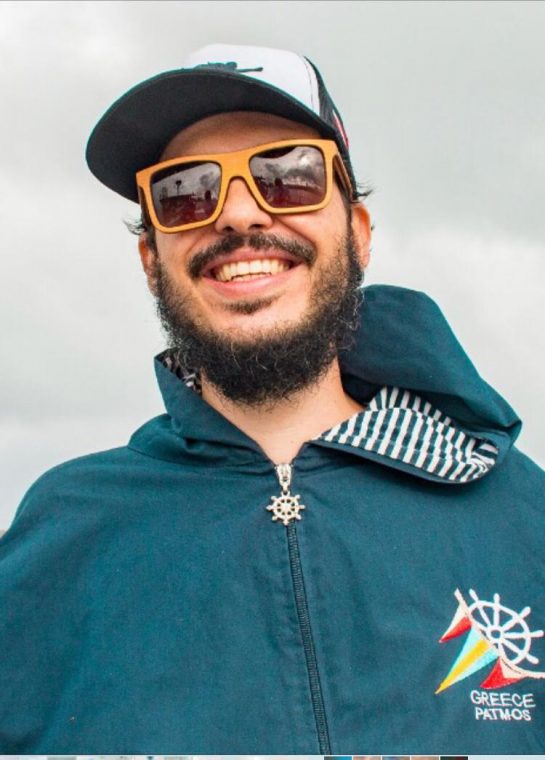
How did you get into the field of conservation?
“Ocean conservation is my inspiration since I was a kid. The importance of the ocean for life on Earth is motivating. The conservation of ocean and all the living marine life is vital for all species, including humans.”
Dr. Pedro Henrique Pereirais the founder and director of Projeto Conservação Recifal and focuses on the research and community-based conservation of greenbeak parrotfish and associated coral reef ecosystem in Brazil. To learn more visit his Instagram page.
Florencia Vilches
New England Aquarium MCAF Fellow
Marine Biologist from Argentina
Researcher at Instituto de Conservación de Ballenas
What does Latino Conservation week mean to you?
“Local citizens, more than anyone, know and value the ecosystems in which they live and on which they depend to survive. For me, the Latino Conservation Week means making visible the need to empower Latino citizens to work for the conservation of their diverse, colorful, and threatened natural heritage through research, education, and sustainable use in the first person, so that we can finally become the protagonists of our natural history.”
Florencia Vilches is an Argentinian marine biologist and researcher with the Instituto de Conservation de Ballenas (ICB) and a PhD student at the University of California, Santa Cruz. For over a decade with ICB, Flo has focused her work on the research and conservation of the southern right whales of Peninsula Valdes Argentina, contributing to the world’s longest running study of a whale species. To learn more about Flo and her work, visit her profile page.

